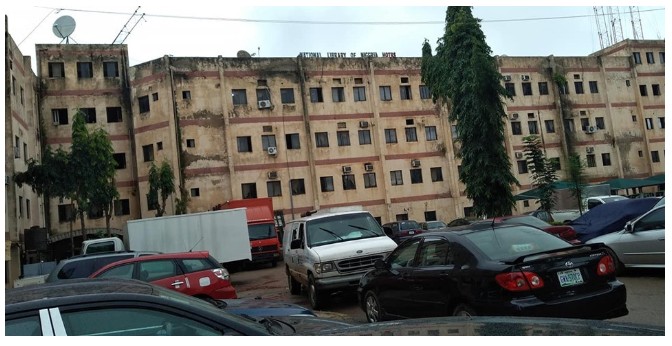Libraries all over the world play an integral part in the development of individuals and societies. They provide access to knowledge, learning and ideas, through books, periodicals and other publications, regardless of one’s socioeconomic status.
Ben White, Head of Intellectual Property, British Library, says, “As gateways to knowledge and culture, libraries play a fundamental role in society. The resources and services they offer create opportunities for learning, support literacy and education, and help shape the new ideas and perspectives that are central to a creative and innovative society.”
In Nigeria, however, libraries can be found within and outside academic institutions. Most often than not, unfortunately, libraries in the country have not been accorded the respect (attention) they deserve.
At the primary and secondary school levels, where pupils and students come into early contact with books, libraries are hardly ever provided for. Where they exist, they are mostly in dilapidated state with obsolete books and materials and most times manned by unqualified and nonprofessionals. Speaking recently, Mr Dominic Omokaro, the President and Chairman of Council, Nigerian Library Association (NLA) said, “The danger for us as a nation is that we are producing people that are half-baked. People are not reading anymore. They just go to the internet, get information, put it together and submit. There’s a lot of plagiarism out there because people do not go to the library to do research anymore.’’
The situation is the same at the state level where many library buildings are given the least priority, with no reading chairs and tables, leaking roofs, vandalised doors and windows.
Libraries, in many Nigerian states, no longer play the role they are supposed to. They have been turned into hideaways by many because very few people visit them due to their poor and sorry state, lack of current books and periodicals.
A staff in one of the state-owned libraries said recently that “Instead of books, library staff mingle with reptiles, birds and ants that mostly get into the library through vandalised windows, especially during the rainy season. It is not uncommon to see bird nests in many library buildings.”
At the national level, Nigeria is still without a befitting permanent structure housing its library. In the Federal Capital Territory (FCT) Abuja, the headquarters of government, the National Library building has been under construction since 2006.
The President Muhammadu Buhari administration had in 2021 announced the approval of the takeover and financing of the multi-billion naira national library edifice by the Tertiary Education Trust Fund (TETFUND), yet the project is moving at a very slow pace. This is certainly not the way to treat a national library project by a country with poor educational indices, ranging from poor reading culture to high number of out-of-school children, shortage of qualified manpower and obsolete materials.
As the National Librarian/Chief Executive Officer of the National Library of Nigeria, Prof. Chinwe Veronica Anunobi, observed recently, “The abandoned national library is a reflection of the place Nigeria has for education, teaching and research. It is not about facilities but the way teachers and learners are exposed to available resources.”
She also lamented that all the states in Nigeria have prototype national libraries except Anambra, Kebbi, Delta and Zamfara.
It is important to find out how we got into this sorry state. We should not, at this time, be talking about lack of interest in the development of the libraries, lack of funding, non-recruitment of qualified staff, lack of training and retraining of staff, or hiring of non-professionals who are running some of these libraries out of existence. The government must start spending an appreciable amount on libraries for the important role they can play with regards to national wellbeing.
The private sector, through their corporate social responsibility and other forms of interventions, should also invest in this project so as to stimulate the return to positive reading culture, which will lead to the change in values and orientation. We should also see the promotion of library endowment initiatives by privileged individuals, among others.
Libraries should be well-funded and recruitment of qualified staff taken seriously considering the countless learning opportunities they offer, which in turn can fuel economic, social and cultural development, as experts have advised.
We, at Daily Trust, are calling for a collective change of attitude towards the library by all stakeholders. We cannot continue to treat libraries with levity if we are serious about developing as a people and as a country.

 Join Daily Trust WhatsApp Community For Quick Access To News and Happenings Around You.
Join Daily Trust WhatsApp Community For Quick Access To News and Happenings Around You.


